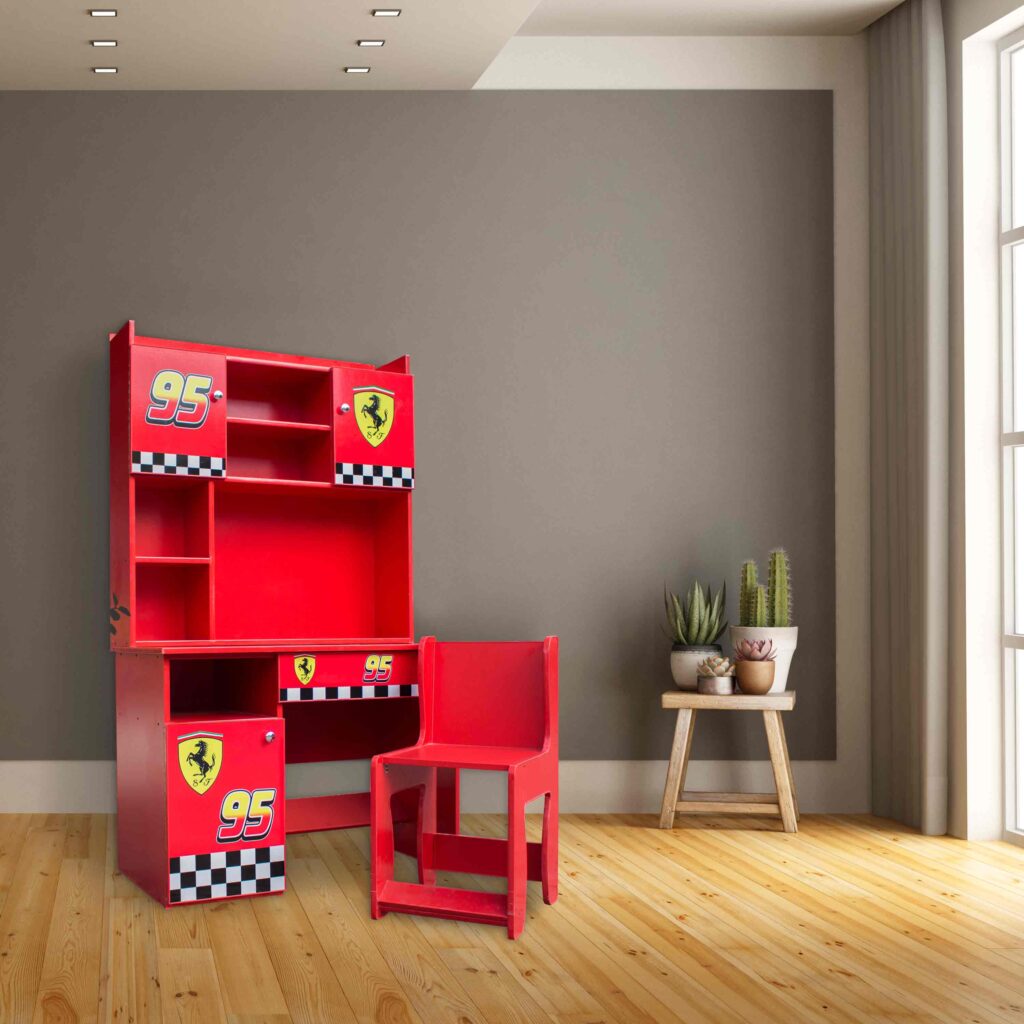Parents are constantly seeking ways to boost their children’s interest in education. Among various methods, one simple yet effective strategy often goes unnoticed: providing a dedicated study table. While this might seem like a minor detail, a well-organized study space can play a pivotal role in enhancing a child’s focus, motivation, and overall interest in learning.
The Psychology Behind a Dedicated Study Space
Children, like adults, thrive in environments that promote productivity. When a child has a designated study table, it signals that learning is important. A study table provides a structured environment, free from distractions, which fosters concentration. Psychologists agree that children benefit from consistency in their study habits, and a specific place to study helps build that routine.
Moreover, a personalized study space gives children a sense of ownership over their education. When a child feels in control of their learning environment, they are more likely to take responsibility for their studies. This feeling of ownership can significantly increase their motivation and engagement with their schoolwork.
Improved Focus and Productivity
A clutter-free, well-lit study table can greatly improve a child’s ability to focus. In contrast, doing homework on a bed or in a crowded living room can lead to distractions, making it difficult for children to concentrate on their tasks. A study table creates a physical and mental boundary that encourages children to stay on task.
Additionally, when children have all their materials—books, stationery, and other resources—within easy reach, it eliminates the need to frequently get up, reducing interruptions. This continuous flow allows children to immerse themselves in learning without breaking their focus.
Ergonomics Matter: Comfort Equals Longer Study Time
Comfort is crucial when it comes to keeping children engaged in their studies. A properly designed study table and chair can prevent discomfort and fatigue, encouraging longer study sessions. Good posture, supported by an ergonomic chair and table, helps children avoid strain on their neck, back, and eyes, which can be particularly important during exam periods or extended study sessions.
When children feel physically comfortable, they are more likely to enjoy studying and spend more time doing so. This increased time spent at the study table naturally leads to greater learning outcomes.
Organization Promotes a Positive Learning Attitude
Children are more likely to develop a positive attitude towards studying when they have a clean and organized space. A study table with drawers and compartments allows for proper organization of school supplies, making it easier to find what they need. This sense of order reduces stress and frustration, allowing children to approach their studies with a clearer mind and more enthusiasm.
In addition, parents can encourage their children to decorate their study table with personal items such as artwork, inspirational quotes, or academic goals. This customization can make the study area a motivating place where children feel inspired to learn.
Building a Routine: A Key to Academic Success
Having a dedicated study table promotes the development of a routine. Children who sit at their study table regularly, at the same time each day, build strong study habits. Over time, this consistency improves their time-management skills, teaches discipline, and fosters independence in learning.
In conclusion, a study table can indeed make a significant difference in a child’s interest in education. By providing a structured, comfortable, and organized environment, it enhances focus, productivity, and motivation. It fosters better study habits and helps children take pride in their academic journey. For parents looking to boost their child’s interest in learning, investing in a well-thought-out study table could be a small but highly effective step towards academic success.

